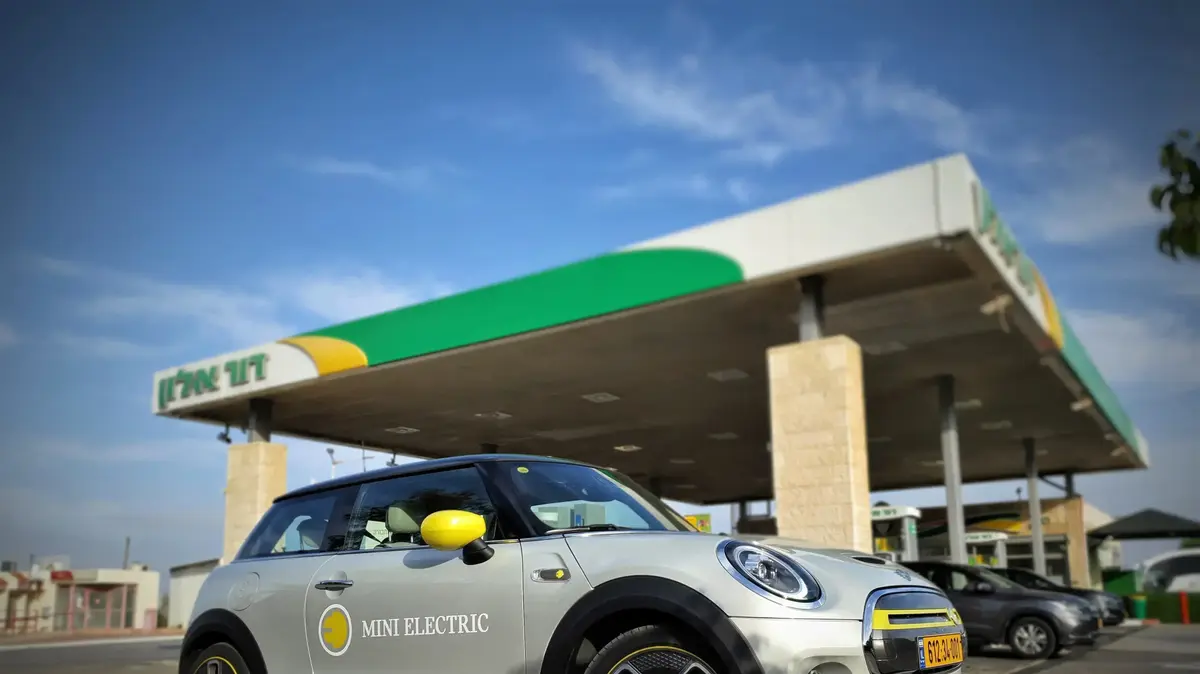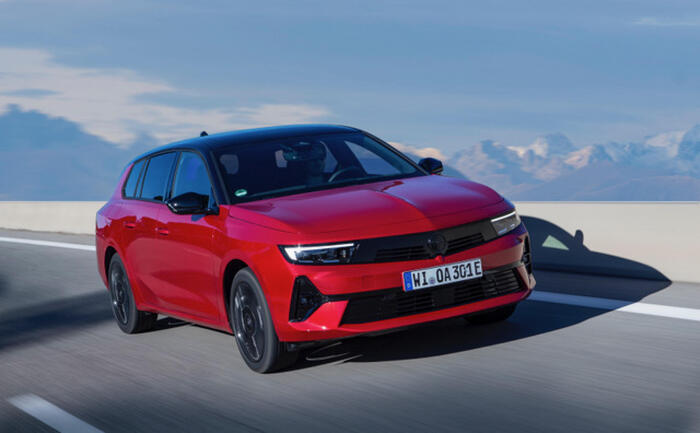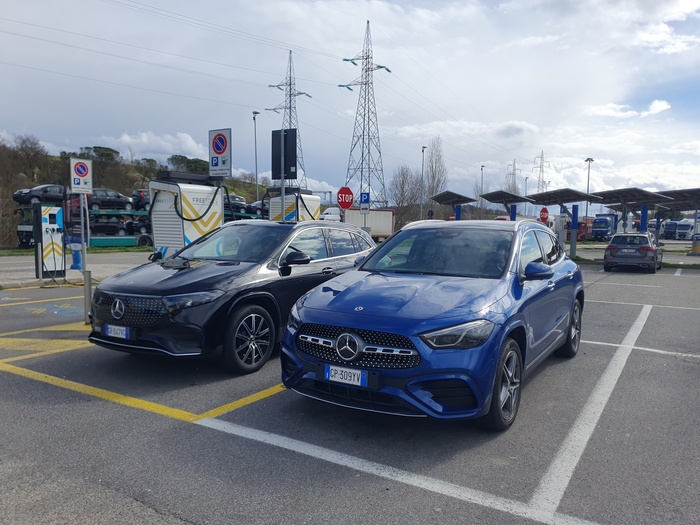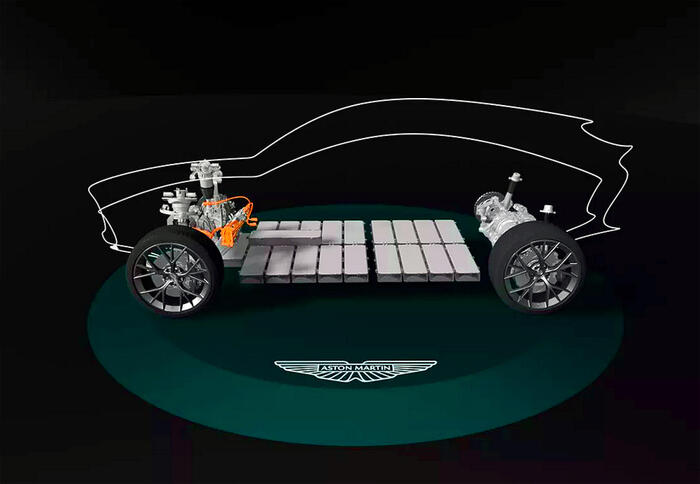Business
consumption
Electric, hybrid or petrol?
The answer seems obvious, but here too there is an end
The trend in Israel in recent years is hybrid vehicles, when the electric market has not yet burst.
All the calculations show that they are more lucrative than petrol vehicles, but the electric one already has one major drawback, and the hybrid may not be a big deal in the near future either.
Tags
electric car
David Rosenthal
Wednesday, 10 March 2021, 00:45 Updated: 01:02
Share on Facebook
Share on WhatsApp
Share on general
Share on general
Share on Twitter
Share on Email
0 comments
Car maintenance costs in Israel constitute the heaviest expense on the family unit apart from the mortgage repayment.
As such, it makes the consideration of purchasing a vehicle extremely substantial.
Today, with the increase in the number of electric vehicles moving on Israeli roads, along with the meteoric rise in the sale of hybrid vehicles, the controversy over the type of vehicle worth purchasing has become more complex and challenging.
A wealth of data and calculations that are required to perform keys on the undecided, and precisely for that Walla!
Business has decided to take up the gauntlet and examine in depth the critical issue: What is the level of savings resulting from maintaining a pure electric vehicle compared to the alternative of a petrol or hybrid vehicle?
For this purpose, we presented the following data to a car accounting company: A family interested in purchasing a new family car at a maximum cost of NIS 150,000.
The maximum travel range is about 15,000 kilometers a year, with half of them within the city.
Another basic premise is that the buyers of the car will keep it for 5 years and the engine volume reaches up to 1.6 liters.
Now in a special operation
The smart test that detects an increased risk of having a stroke
In collaboration with Shahal
To the full article
An electric vehicle looks ideal, and yet there are a few things to pay attention to (Photo: Keinan Cohen)
The bottom line of the test conducted for us, will not surprise anyone: indeed, the electric vehicle is the cheapest to maintain and its annual amount is NIS 26,729 or NIS 2,227 per month.
How did we arrive at this figure?
In the table in front of you are all the values and calculations, from which a rather interesting conclusion emerges: the gap with the hybrid vehicle (driven in part by an electric motor) is lower than we expected. The data indicate a monthly cost of NIS 2,446. The gap, it turns out, is NIS 217. Per month or NIS 2,628 per year. The numbers get a significant touch when you look at the column of the vehicle that is driven exclusively by gasoline, since the difference in the cost of maintenance per month grows to NIS 648 per month, which piles up to NIS 7,776 per year.
A dive into the data shows that the most critical variable, the one that systematically empties the car owner's pocket, and no matter how it is driven, is the return on capital, a laundered concept of the painful truth called depreciation.
Before cross-referencing us, we mention that this is an average that does not take into account the concrete marketability data of each and every vehicle, so it is quite possible that the data in the field are different, but not drastically.
Thus, when we talk about the pure electric vehicle, whose value as new is NIS 128,888 on the day of purchase, about five years later it is expected to lose its value by no less than 50%, or NIS 70,519.
According to the data, the car that is powered by an internal combustion engine only does not only drink a lot of fuel, it also drinks a fantastic amount for its owners: five years later its value is expected to fall by 55%, a figure that reflects a painful offset of NIS 68,251.
And what will happen to the value of a hybrid vehicle?
Its price as new is NIS 143,900, but when it is sold in about five years, the amount that will be deducted from its value reaches NIS 65,699.
Into this whole cauldron of numbers should be thrown a few more data and aspects that did not appear in the calculation of a car calculator.
First, when it comes to charging station for electric car.
The expense varies and ranges from NIS 2,000 to NIS 5,000 per position, depending on the marketer's subsidy policy.
But the big story is not the cost, but the programming and convenience.
In the case of a private home, the installation of a stand does not require the consent of half of the building's occupants, but sometimes, a single position is not enough, such a position must also be placed in the workplace.
And all this, before we consider the wear and tear of the battery and the long time required to charge it, which in connection with a standard household outlet can reach 13 hours easily until fully charged.
Also, another and very significant aspect needs to be taken into account - the range of travel that varies from manufacturer to manufacturer.
At present, it is still unclear whether the electric vehicle segment, which in the past year accounted for around 0.8% of the Israeli car market, will align with the European trend and bite into the segments of the hybrid vehicles or those on pure gasoline.
Two aspects will affect the depth of penetration: fuel prices and the willingness of the Ministry of Finance to give up the mountain of money that lies in fuel taxation and various benefits provided to buyers of electric vehicles.
And meanwhile, it seems that as of today the deliberation remains mostly at the conceptual level.
Most of the public in Israel is imprisoned in the conflict of a hybrid vehicle or gasoline.
In about ten months we are expected to reach the third stage in the green tax outline, where the benefits on hybrid cars are expected to be abolished altogether and the purchase tax for these vehicles will jump from 30% to 65% at the beginning of next year.
What will happen then?
Opinions differ.
The pricing of a more private route is more lucrative today than operational leasing.
Dagan Ronen, CEO of Hitekzon (Photo: Chen Galili)
And if we are dealing with the viability of buying a car, it is inevitable to review one of the most significant trends that have taken place in the car market in Israel: the mass abandonment of the operational leasing track.
Over the past five years, the proportion of high-tech workers who contracted through their employer in an operational leasing deal stood at a rate of 70%, but then came the corona, which forced many to move from working from home, increasingly eroding the viability of this route.
As a result, the high-tech consumer club of high-tech companies, many of the employees, waived the 'benefit' of the employer of the operational leasing and chose another alternative, in light of the lucrative pricing.
Thus, for example, the club notes that it is now possible to renew the Hyundai Ionic Premium Hybrid 2021, with an initial payment of NIS 6,900 (instead of NIS 8,900) and a monthly payment of NIS 2,349.
Dagan Ronen, co-CEO of the club, states "that the price includes a comprehensive insurance and treatment package as well as tire replacement, battery and wipers plus a negligible amount of money." NIS and later NIS 3,299 per month.
Share on Facebook
Share on WhatsApp
Share on general
Share on general
Share on Twitter
Share on Email
0 comments









